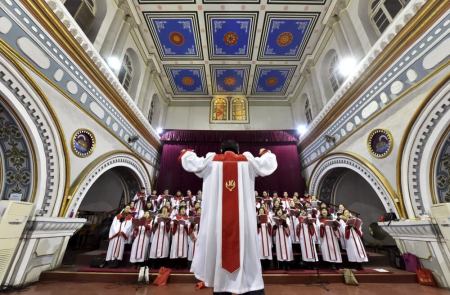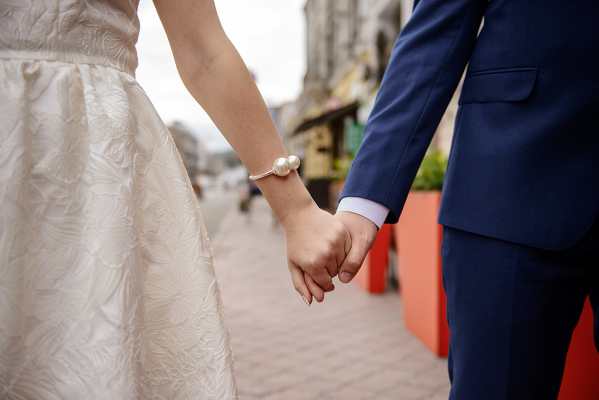Two Chinese Catholic bishops ordained under landmark China-Vatican agreement

Two Chinese Catholic bishops have been ordained with the blessing of both Pope Francis and the Chinese government under a controversial new deal between Beijing and the Vatican.
On Monday, Monsignor Antonio Yao Shun, 54, received the papal mandate and was consecrated as the bishop of Jining, in Inner Mongolia, Vatican News reports. His ordination, which took place at Our Lady of Rosary Cathedral, marks the first since the Vatican and Beijing signed a "Provisional Agreement" in September over bishop nominations.
“I can confirm that H.E. Mgr. Antonio Yao Shun, who has been consecrated Bishop of Jining/Wulanchabu, Inner Mongolia (China), received the Papal Mandate, as was also stated by the Ordaining Bishop during the ceremony yesterday, 26th August 2019,” Matteo Bruni, director of the Vatican Press Office, said in a statement.
Two days later, a second bishop was ordained. Fr. Stephen Xu Hongwei, 44, was ordained as coadjutor bishop of Hanzhong in the northern state of Shaanxi. In a statement, Bruni confirmed that Hongwei's ordination "also took place in the framework of the Provisional Agreement between the Holy See and the People's Republic of China."
The “Provisional Agreement,” which had the stated aim of allowing "the wounds of the past to be overcome," was signed on Sept. 22. At the time, Vatican spokesman Greg Burke said that the accord was “not political but pastoral, allowing the faithful to have bishops who are in communion with Rome but at the same time recognized by Chinese authorities."
Although the contents of the “Provisional Agreement” have never been disclosed, reports indicate that it requires Chinese officials to submit a candidate for bishop to the Vatican, while the pope will have final say over the matter.
Several Vatican experts say that with the two ordinations, China is demonstrating it recognizes the need for a bishop to be appointed by the pontiff. However, others believe Pope Francis appointed Yao “long before” the accord.
David Mulroney, a former Canadian ambassador to China, told LifeSiteNews that a return to ordaining bishops in China is “welcome,” but expressed concern about “lack of transparency” regarding the Vatican-China deal.
“Moving forward with episcopal appointments in China is most welcome, and is why the Vatican sought some form of agreement with the Chinese state,” he said.
China is home to about 12 million Catholics, who are divided between the Chinese Patriotic Catholic Association and an underground church loyal to the Vatican. Underground priests and parishioners are often detained and harassed by Chinese authorities.
The nomination and assignment of bishops had caused tension between the Vatican and China for over seven decades. While the Catholic Church insisted that bishops be appointed by the pope, the Chinese government resisted what it viewed as foreign interference in China's internal affairs.
The September deal between the Vatican and China sparked controversy among some Catholics, as it came at a time when the Chinese government was taking extreme measures to limit the religious freedom of Christians.
Chinese Cardinal Joseph Zen said that the agreement "indirectly" amounts to the Vatican "helping the government to annihilate the underground Church that Beijing was not able to crush.”
Amnesty International China Researcher Patrick Poon told CNN the agreement created serious concerns for freedom of religion in China in the future.
"Such an agreement will effectively set a very bad precedent for other religions (in China) ... It will put Catholics under a lot of pressure," he said.
Persecution watchdog Christian Solidarity Worldwide also signaled its concerns about the deal.
"CSW is deeply concerned about the timing of this provisional agreement between the Chinese government and the Vatican," CSW East Asia Team Leader Benedict Rogers said in a statement. "While we understand some of the motivations behind the Vatican's effort toward an agreement, there are significant concerns about the implications for freedom of religion or belief in China."
Open Doors USA ranks China as the 27th worst country in the world when it comes to Christian persecution on its 2019 World Watch List.





















